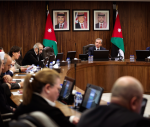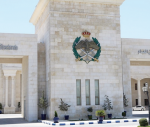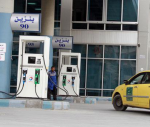You are here
No justice, no peace
May 17,2018 - Last updated at May 17,2018
Tuesday, May 15 marked the 70th anniversary of the Palestinian Nakba, the forced migration of hundreds of thousands of Palestinians from their homes due to the creation of the state of Israel.
Every year, since the catastrophic event, much is said about the ongoing injustice and tragedy that befell, and still befalls, the Palestinians, and much can still be said.
Three points I wish to raise on this sad occasion.
The first is that 70 years have passed since the catastrophe, and there are no winners.
As for the Palestinians, they are still being oppressed by Israel, imprisoned without due legal process, displaced and killed and maimed in broad daylight.
And despite countless UN resolutions in their favour and a negotiated peace agreement with Israel (the Oslo Accords), they are still under occupation and still stateless, due to Israel's disregard of both these resolutions and the Oslo Accords.
Regarding Israel, 70 years have passed since its creation, and it enjoys neither the security nor the peace that any normal state should. Due to its erroneous approach, i.e. the resort to prowess and military force in seeking "solutions", and a long history of callous unilateral decisions taken regardless of how others feel or what they say, it has surrounded itself with heavy fences and staunch concrete walls, and is largely regionally and globally isolated.
No winners in Palestine despite Israel having the upper hand.
The second point is that the failure to achieve a fair settlement for the conflict in Palestine is also due to the absence of a credible approach. As long as Israel and the US think that peace can be achieved on the basis of "facts on the ground," facts imposed by sheer oppression and military force — there will be no peace.
As several noted participants in a conference held at the University of Jordan last week under the title "The Palestinian Issue — Whereto?" have stressed, justice is a prerequisite for peace.
No peace without justice.
Justice cannot happen with countless UN resolutions being promptly and continually ignored by Israel, often with US backing.
Justice cannot happen when Israel reneges on agreements labouriously negotiated and agreed upon with the Palestinians and other Arab countries.
Nor can it happen when a presumed peace patron, the US, aligns itself almost entirely with one side to the conflict and seeks to pressure and manipulate the other side, as President Donald Trump administration is currently doing.
Justice means the rule of law, and neutral and fair-handed patronage.
The third is that the "peace" that counts is the peace felt and embraced by the people.
This is the sad story of the "peace”, spelled "piece" by many critics, that has been sought for the past 70 years between Arabs, and not just Palestinians, and Israel.
Peace should be fair, and it should be whole.
When former Egyptian President Anwar Sadat negotiated "peace" with Israel and signed the Camp David Accords, these accords were heavily criticised by almost all Arab countries, and many broke diplomatic relations with Egypt, because what was agreed upon addressed a "piece" of the matter, not the matter in its entirety.
And they were also criticised by the Egyptian people themselves, because they were Sadat's accords, and not the Egyptian people's.
Because of this, 40 years have passed since the Camp David Accords, and the Egyptian people have not embraced them; and peace between Egypt and Israel continues to be "cold".
There is a difference, then, between what one may call the "peace of politicians" and the "peace of the people". What is required is the latter.
One hopes, though there is little evidence pointing in this direction, that the 70th anniversary of the Nakba will be an occasion for all parties to the Arab-Israeli conflict, and not just the Palestinian-Israeli, to reflect on the many lessons learned, one fundamental lesson of which is: no justice, no peace.













